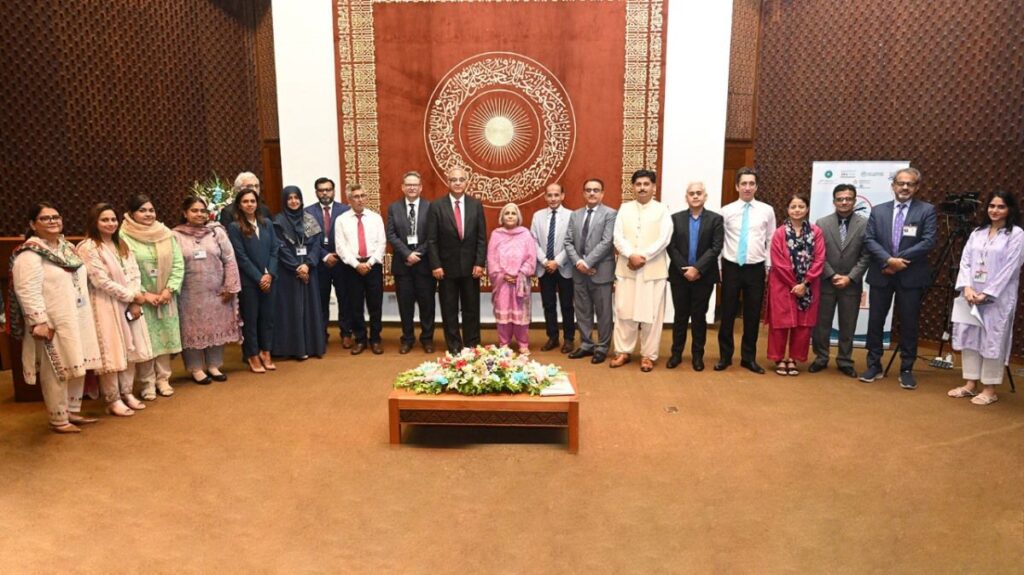
Karachi: In an initiative to combat one of the world’s deadliest diseases, the Directorate of Malarial Control (DoMC) and the Aga Khan University’s Malaria Elimination Consortium (AKU-MEC), the Ministry for Health, Sindh, the department for Vector Borne Diseases and Zenysis Technologies have joined hands to spearhead Pakistan’s mission to eliminate malaria by 2035.
At a symposium held at Aga Khan University in Karachi, leaders from federal and provincial ministries, along with experts from AKU-MEC, convened to strategize and plan the roadmap for eradicating malaria across Pakistan. Led by Professor Dr M Asim Beg from the department of Pathology and Laboratory Medicine at AKU, the symposium is a part of the GLIDE project for Malaria elimination in Pakistan.
“It is important for our health practitioners to be armed with knowledge and resources on vector research techniques and climate change analysis, as well as any factors attributed to the strengthening of malarial parasites in the country. I would very much like to see this partnership move forward and apply the recommendations made in Phase 1 of this project by AKU and Zenysis to make Thatta District a model district for malaria elimination” said Health Minister, Government of Sindh Dr Azra Pechuho, who is also the Patron-in-Chief of AKU-MEC.
“Pakistan has more than a decade to achieve its goal of eliminating malaria by 2035. Kyrgyzstan, Tajikistan, and Uzbekistan have done it,” said AKU President, Dr Sulaiman Shahabuddin while addressing the gathering “Sri Lanka has done it. So has China and the UAE. I believe Pakistan can also be a beacon of hope for its surrounding regions in the war against malaria.”
The AKU-MEC also announced plans to establish a vector science research facility to assist the provincial government’s efforts in combating malaria. This initiative will be a prime focus of the AKU-Lisbon Research Initiative, further solidifying AKU’s commitment to scientific advancement and public health.
“The challenge to eliminate malaria from Pakistan by 2035 is one that requires collective efforts, and we are more prepared than ever to assist the government, stakeholders, and healthcare experts in achieving this goal,” said Dr M Asim Baig, who is also the Patron in Charge for the Consortium.
A Memorandum of Understanding has been signed between AKU and the Directorate of Malaria Control which enables the sharing of national data. This collaboration aims to improve national surveillance and information systems, enabling more effective data analysis and informed decision-making in the battle against malaria.
The MEC symposium is another milestone in the journey towards malaria elimination, shedding light on current gaps and challenges while reshaping community perspectives on the disease.